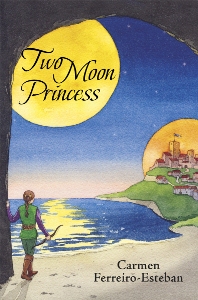With teens around us glued to computer or TV screens, their fingers surgically attached to cell phones, and buds feeding i-music straight into their ears, the rest of us may be thinking, “What is this world coming to?” Frankly, a good number of us older people are wondering if it’s going to be possible for “the younger generation” to speak or write in complete sentences anymore what with the prevalence of IM’ing and texting.
A young-adult novel takes this technology and runs with it in hyper-speed. In M.T. Anderson’s Feed, people in a near-future society have the equivalent of cell phones/internet connections wired straight into their brains, so any Web searching or chatting is done right in their heads, no need for having to strain their fingers or thumbs. Advertisements are geared specifically to them; shopping can be accomplished with a thought, and packages delivered almost immediately. Consumerism is not just running rampant; the big corporations are literally running the world.
One young man has an opportunity to think a little differently about this way of life when he meets a girl who thinks above and beyond the “feed.” Violet didn’t get her implant until she was seven, and her father doesn’t have one at all. She doesn’t just spend, spend, spend like all the other teens, and she is aware of and concerned about the scary things that are happening to the environment. Titus finds her intriguing, and Violet is interested in the “normal” way of life that Titus and his friends enjoy, vacuous though it is. The two become close, but of course complications arise to challenge them both.
Feed is a troubling, thought-provoking book that should be required reading for any teen who’s a bit too “plugged-in.” The only downside is that the book is full of bad language. Anderson says to write the novel, he “read a huge number of magazines like Seventeen, Maxim and Stuff. I listened to cell phone conversations in malls. People tend to shout.” So the style of speaking (kids spouting a large quantity of a very limited pool of words and saying nothing of any real meaning or value) is scarily authentic. It’s a sad commentary on how meaningless much of communication has become, as well as the huge amount of vulgarity that teens employ so casually today.
Rated: High for an obscene amount of language. There are around 40 uses of strong language in this novel, maybe more, and about the same number of uses of moderate language and some mild language. There are a few sexual references.




